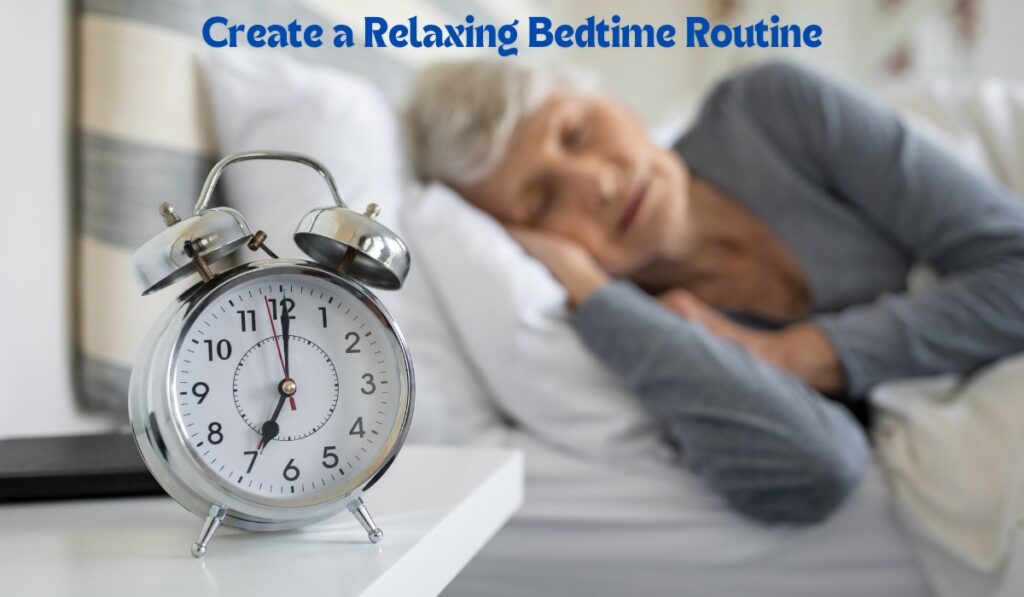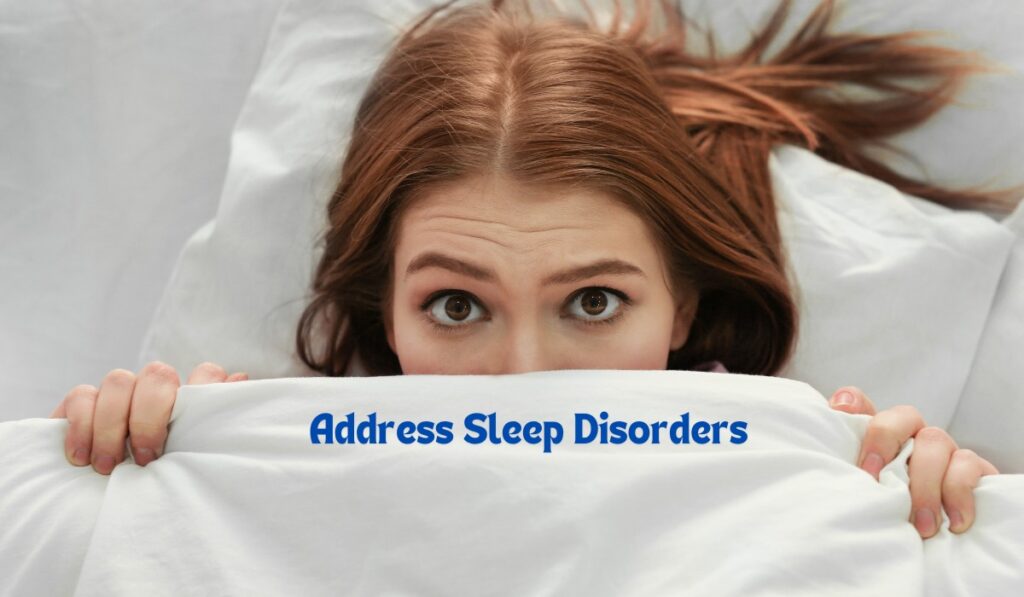Unlock the Secret to Restful Sleep: Proven Tips to Sleep Better at Night

Description
Struggling with restless nights? Discover science-backed tips to enhance your sleep quality and wake up rejuvenated. From bedtime routines to dietary choices, this comprehensive guide unveils the secrets to achieving better sleep naturally. Learn how to optimize your rest and elevate your overall health.
In today’s fast-paced world, quality sleep often takes a backseat to our busy schedules, resulting in chronic sleep deprivation that can have serious consequences for our health. However, sleep is vital for both physical and mental well-being. If you’ve been grappling with restless nights and groggy mornings, it’s time to take action and prioritize your sleep. This guide will delve into effective strategies to improve your sleep quality, supported by scientific research and real-life case studies.
Problem: The Sleep Crisis
Sleep disorders are increasingly prevalent, with millions of people worldwide facing challenges in falling asleep, staying asleep, or waking up feeling refreshed. The repercussions of poor sleep are extensive, impacting everything from cognitive function to emotional health.
- The Sleep Foundation reports that 35.2% of adults in the U.S. get less than the recommended 7 hours of sleep each night.
- According to the Centers for Disease Control and Prevention (CDC), insufficient sleep is associated with various chronic conditions, including diabetes, heart disease, and depression.
The issue is clear: poor sleep quality is a widespread problem with significant health implications.

Unlock the Secret to Restful Sleep: Proven Tips to Sleep Better at Night
Intensify: The Impact of Poor Sleep
You might believe that losing a few hours of sleep occasionally isn’t a major concern, but the truth is that consistent poor sleep can have serious consequences. This is the way it can influence your life:
- Decreased Productivity: Lack of sleep impairs cognitive performance, making it more difficult to concentrate, solve problems, and make decisions.
- Increased Stress: Sleep deprivation raises cortisol levels, the body’s stress hormone, resulting in heightened anxiety and irritability.
- Weakened Immune System: Chronic sleep loss compromises the immune system, making you more vulnerable to illnesses.
- Weight Gain: Poor sleep disrupts the balance of hunger hormones, leading to increased appetite and weight gain.
- Emotional Instability: Sleep deprivation impacts mood regulation, raising the risk of depression and anxiety.
These are just a few examples of how inadequate sleep can affect your overall health and fitness. However, the good news is that there are steps you can take to enhance your sleep quality and reclaim your nights.
Solution: Tips for a Better Night’s Rest
Now that we’ve identified the problem and its consequences, let’s explore actionable steps you can take to enhance your sleep quality.

1. Establish a Consistent Sleep Schedule
One of the best ways of further developing your rest is by sticking to a customary rest plan. Heading to sleep and awakening simultaneously consistently directs your body’s interior clock, making it simpler to nod off and awaken normally.
Case Study: The Power of Consistency
A study published in the journal Sleep found that individuals with irregular sleep patterns had poorer sleep quality and experienced more fatigue during the day compared to those with a consistent sleep schedule.
| Sleep Schedule Consistency | Average Sleep Quality Score (1-10) | Daytime Fatigue Level (1-10) |
| Irregular | 5.5 | 7.2 |
| Consistent | 8.3 | 4.1 |
Tip: Choose a bedtime and wake-up time that allows for at least 7-8 hours of sleep, and adhere to it even on weekends.

2. Create a Relaxing Bedtime Routine
Your pre-sleep routine plays a vital role in signaling to your body that it’s time to wind down. Engaging in calming activities before bed can facilitate the transition from wakefulness to sleep.
Suggested Routine:
- 30 Minutes Before Bed: Turn off electronic devices and engage in a soothing activity, such as reading a book or taking a warm bath.
- 15 Minutes Before Bed: Practice deep breathing exercises or meditation to alleviate stress and calm the mind.
Case Study: The Impact of Pre-Sleep Meditation
A randomized controlled trial published in JAMA Internal Medicine revealed that individuals who practiced mindfulness meditation before bed experienced significant enhancements in sleep quality compared to those who did not.
| Group | Sleep Quality Improvement (%) |
| Meditation | 65% |
| Control | 30% |
Tip: Experiment with various relaxation techniques to discover what works best for you.

3. Optimize Your Sleep Environment
Your sleep environment significantly influences your ability to fall asleep and remain asleep. By making a few adjustments, you can create a setting that promotes restful sleep.
Key Factors to Consider:
- Temperature: Maintain a cool bedroom (around 65°F or 18°C) since a cooler room enhances sleep quality.
- Lighting: Utilize blackout curtains to eliminate light and consider a comfortable eye mask if needed.
- Noise: Minimize noise with earplugs, white noise machines, or soothing music.
- Bedding: Invest in a supportive mattress and pillows that cater to your preferred sleeping position.
Case Study: The Impact of Temperature on Sleep Quality
Research published in the journal Sleep Medicine Reviews indicates that room temperature plays a crucial role in sleep quality, with cooler temperatures resulting in longer and more restorative sleep.
| Room Temperature (°F) | Average Sleep Duration (Hours) | Sleep Quality Score (1-10) |
| 75°F | 6.5 | 6.0 |
| 65°F | 7.8 | 8.5 |
Tip: Regularly evaluate and modify your sleep environment to ensure it remains conducive to restful sleep.

4. Limit Caffeine and Alcohol Intake
While caffeine and alcohol are widely consumed, they can disrupt sleep if taken too close to bedtime. Caffeine acts as a stimulant that can keep you alert, whereas alcohol can interfere with sleep cycles and hinder deep, restorative rest.
Guidelines:
- Caffeine: Refrain from consuming caffeine at least 6 hours before bedtime.
- Alcohol: Limit alcohol consumption in the evening and avoid drinking right before sleep.
Case Study: Caffeine Consumption and Sleep Disturbance
A study published in the Journal of Clinical Sleep Medicine revealed that consuming caffeine 6 hours before bedtime decreased total sleep time by over an hour.
| Time of Caffeine Intake Before Bed | Total Sleep Time Reduction (Minutes) |
| 6 Hours | 63 |
| 3 Hours | 45 |
| 0 Hours | 120 |
Tip: Choose caffeine-free herbal teas or warm milk in the evening to encourage relaxation.

5. Manage Stress and Anxiety
Stress and anxiety are major contributors to poor sleep quality. When your mind is filled with worries, it can be difficult to fall asleep and stay asleep. Implementing stress management techniques can help calm your mind and enhance your sleep.
Techniques to Try:
- Journaling: Write down your thoughts and concerns before bed to clear your mind.
- Progressive Muscle Relaxation: Tense and relax each muscle group in your body to alleviate physical tension.
- Mindfulness Meditation: Focus on your breath and remain present in the moment to diminish mental chatter.
Case Study: Stress Reduction and Sleep Improvement
A study in Behavioral Sleep Medicine showed that participants who practiced stress management techniques experienced significant improvements in sleep quality and duration.
| Group | Sleep Quality Improvement (%) | Sleep Duration Increase (Minutes) |
| Stress Management | 55% | 40 |
| Control | 20% | 10 |
Tip: Incorporate stress management practices into your daily routine to help enhance sleep over time.

6. Exercise Regularly (But Not Too Close to Bedtime)
Regular physical activity has been shown to improve sleep quality by promoting deeper, more restorative rest. However, exercising too close to bedtime can have the opposite effect, as it raises your body temperature and stimulates your nervous system.
Exercise Recommendations:
- Morning or Afternoon: Aim to exercise earlier in the day to maximize sleep benefits.
- Moderate Activity: Engage in activities like brisk walking, cycling, or yoga for at least 30 minutes most days of the week.
Case Study: The Sleep Benefits of Regular Exercise
A study published in the journal Sleep found that individuals who participated in regular moderate exercise experienced significant improvements in sleep quality and duration compared to those who were sedentary.
| Activity Level | Average Sleep Quality Score (1-10) | Average Sleep Duration (Hours) |
| Sedentary | 5.8 | 6.0 |
| Moderate Exercise | 7.9 | 7.5 |
Tip: Find a form of exercise you enjoy and incorporate it into your routine regularly.

7. Limit Exposure to Screens Before Bed
The blue light emitted by smartphones, tablets, and computers can disrupt your body’s production of melatonin, the hormone that regulates sleep. Reducing screen time before bed can improve rest quality.
Strategies to Reduce Screen Time:
- Set a Screen Curfew: Turn off all electronic devices at least 30 minutes before bedtime.
- Use Blue Light Filters: If you need to use screens in the evening, enable the blue light filter on your devices.
- Engage in Non-Screen Activities: Read a physical book, write in a journal, or listen to calming music instead of scrolling through your phone.
Case Study: The Impact of Screen Time on Sleep Quality
A study published in the Journal of Sleep Research found that individuals who limited screen time before bed experienced improved sleep quality and fell asleep more quickly than those who used screens late into the night.
| Screen Time Before Bed (Minutes) | Average Sleep Latency (Minutes) | Sleep Quality Score (1-10) |
| 60+ Minutes | 35 | 6.1 |
| 30 Minutes | 20 | 7.4 |
| 0 Minutes | 15 | 8.2 |
Tip: Establish a screen-free wind-down routine to signal to your body that it’s time for sleep.

8. Be Mindful of Your Diet
What you eat can greatly influence your sleep quality. Consuming heavy or spicy meals close to bedtime can lead to discomfort and disrupt sleep, while certain foods can encourage relaxation and enhance sleep.
Foods to Include:
- Tryptophan-Rich Foods: Turkey, chicken, and bananas are rich in tryptophan, an amino acid that aids in the production of melatonin.
- Magnesium-rich foods: Almonds, spinach, and pumpkin seeds are high in magnesium, which can help relax muscles and promote sleep.
Foods to Avoid:
- Heavy Meals: Large portions can lead to discomfort and indigestion, making it harder to sleep.
- Spicy Foods: Spices may cause heartburn and interfere with sleep.
- Sugary Snacks: Sugar can trigger blood sugar spikes and crashes, resulting in sleep disturbances.
Case Study: The Role of Diet in Sleep Quality
A study published in the journal Appetite found that individuals who maintained a balanced diet focused on nutrient-dense foods experienced improved sleep quality compared to those with a diet high in sugar and processed foods.
| Diet Type | Sleep Quality Score (1-10) | Frequency of Nighttime Awakenings |
| Nutrient-Dense | 8.1 | 1-2 Times |
| High in Sugar/Processed Foods | 6.0 | 3-4 Times |
Tip: Plan your meals to ensure you’re nourishing your body with sleep-friendly foods, particularly in the evening.

9. Address Sleep Disorders
If you’ve tried all the above tips and still struggle with sleep, you may be facing a sleep disorder such as insomnia, sleep apnea, or restless leg syndrome. It’s crucial to address these issues with the assistance of a healthcare professional.
Common Sleep Disorders:
- Insomnia: Difficulty falling or staying asleep, often due to stress, anxiety, or lifestyle factors.
- Sleep Apnea: A condition where breathing repeatedly stops and starts during sleep, leading to fragmented sleep and daytime fatigue.
- Restless Leg Syndrome: An uncontrollable urge to move the legs, often accompanied by uncomfortable sensations, which can disrupt sleep.
Case Study: Treatment of Sleep Apnea
A study published in the American Journal of Respiratory and Critical Care Medicine found that individuals with sleep apnea who utilized continuous positive airway pressure (CPAP) therapy experienced significant improvements in sleep quality and daytime alertness.
| Sleep Disorder | Sleep Quality Improvement (%) | Daytime Alertness Improvement (%) |
| Untreated Sleep Apnea | 25% | 30% |
| Treated with CPAP | 70% | 65% |
Tip: If you suspect you have a sleep disorder, seek medical advice to explore treatment options.

10. Keep a Sleep Diary
Tracking your sleep patterns can help you identify factors that may be impacting your sleep quality. A sleep diary can offer valuable insights into your habits and assist you in making necessary adjustments.
What to Include in a Sleep Diary:
- Bedtime and Wake-Up Time: Record the time you go to bed and the time you wake up each day.
- Sleep Duration: Note how many hours of sleep you get each night.
- Sleep Quality: Rate the quality of your sleep on a scale of 1 to 10.
- Lifestyle Factors: Document any activities, meals, or stressors that may have influenced your sleep.
Case Study: The Benefits of Keeping a Sleep Diary
A study in Behavioral Sleep Medicine found that participants who maintained a sleep diary were able to identify patterns and triggers affecting their sleep, resulting in significant improvements in sleep quality.
| Group | Sleep Quality Improvement (%) | Identification of Sleep Disruptors (%) |
| With Sleep Diary | 50% | 80% |
| Without Sleep Diary | 25% | 40% |
Tip: If you suspect you have a sleep disorder, seek medical advice to explore treatment options.
10. Keep a Sleep Diary
Tracking your sleep patterns can help you identify factors that may be impacting your sleep quality. A sleep diary can offer valuable insights into your habits and assist you in making necessary adjustments.
What to Include in a Sleep Diary:
- Bedtime and Wake-Up Time: Record the time you go to bed and the time you wake up each day.
- Sleep Duration: Note how many hours of sleep you get each night.
- Sleep Quality: Rate the quality of your sleep on a scale of 1 to 10.
- Lifestyle Factors: Document any activities, meals, or stressors that may have influenced your sleep.
Case Study: The Benefits of Keeping a Sleep Diary
A study in Behavioral Sleep Medicine found that participants who maintained a sleep diary were able to identify patterns and triggers affecting their sleep, resulting in significant improvements in sleep quality.
Conclusion
In conclusion, achieving restful sleep is not just about getting the right amount of shut-eye; it’s about creating habits and an environment that supports quality sleep. By implementing proven tips such as maintaining a consistent sleep schedule, optimizing your sleep environment, and managing stress, you can significantly improve your sleep quality. Remember, restful sleep is essential for your physical health, mental well-being, and overall productivity. Start making small, consistent changes today, and unlock the secret to better sleep for a healthier, more energized tomorrow.
References
- National Sleep Foundation – Offers extensive resources on sleep hygiene and tips for improving sleep.
National Sleep Foundation - American Sleep Association – Provides information on various sleep disorders and effective treatments.
American Sleep Association - Mayo Clinic – Features a range of articles and studies on sleep problems, sleep disorders, and practical advice for better sleep.
Mayo Clinic – Sleep - Centers for Disease Control and Prevention (CDC) – Offers insights into the importance of sleep and how sleep affects overall health.
CDC – Sleep and Sleep Disorders - Harvard Medical School – Division of Sleep Medicine – Includes research and advice on improving sleep quality and addressing sleep disorders.
Harvard Medical School – Sleep Medicine - Journal of Clinical Sleep Medicine – Publishes research studies and articles related to sleep health and disorders.
Journal of Clinical Sleep Medicine - Sleep Medicine Reviews – A peer-reviewed journal that offers comprehensive reviews of sleep research and practical sleep improvement strategies.
Sleep Medicine Reviews - Behavioral Sleep Medicine – Provides insights into behavioral approaches to managing and improving sleep quality.
Behavioral Sleep Medicine


